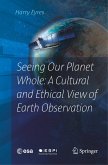How should we value the environments we inhabit? What ethical resources exist to better appreciate the world around us? In this book, three of the leading writers on environmental philosophy in the US and UK offer an introduction and a rigorous assessment of the ways in which the natural and cultural environments we inhabit are valued.
We live in a world confronted by mounting environmental problems; increasing global deforestation and desertification, loss of species diversity, pollution and global warming. In everyday life people mourn the loss of valued landscapes and urban spaces. Underlying these problems are conflicting priorities and values. Yet dominant approaches to policy-making seem ill-equipped to capture the various ways in which the environment matters to us.
Environmental Values introduces readers to these issues by presenting, and then challenging, two dominant approaches to environmental decision-making, one from environmental economics, the other from environmental philosophy. The authors present a sustained case for questioning the underlying ethical theories of both of these traditions. They defend a pluralistic alternative rooted in the rich everyday relations of humans to the environments they inhabit, providing a path for integrating human needs with environmental protection through an understanding of the narrative and history of particular places. The book examines the implications of this approach for policy issues such as biodiversity conservation and sustainability.
Written in a clear and accessible style for an interdisciplinary audience, this volume will be ideal for student use in environmental courses in geography, economics, philosophy, politics and sociology.
We live in a world confronted by mounting environmental problems; increasing global deforestation and desertification, loss of species diversity, pollution and global warming. In everyday life people mourn the loss of valued landscapes and urban spaces. Underlying these problems are conflicting priorities and values. Yet dominant approaches to policy-making seem ill-equipped to capture the various ways in which the environment matters to us.
Environmental Values introduces readers to these issues by presenting, and then challenging, two dominant approaches to environmental decision-making, one from environmental economics, the other from environmental philosophy. The authors present a sustained case for questioning the underlying ethical theories of both of these traditions. They defend a pluralistic alternative rooted in the rich everyday relations of humans to the environments they inhabit, providing a path for integrating human needs with environmental protection through an understanding of the narrative and history of particular places. The book examines the implications of this approach for policy issues such as biodiversity conservation and sustainability.
Written in a clear and accessible style for an interdisciplinary audience, this volume will be ideal for student use in environmental courses in geography, economics, philosophy, politics and sociology.
"Environmental Values is an excellent book, easy to read, and relatively short." -- Richard Haynes, Ecological Restoration, Vol. 26, No. 1
Environmental Values covers an extraordinary amount of ground with clarity and precision. It distils key ideas from leading thinkers in environmental philosophy into one tightly argued volume. It offers both careful, accurate summaries of existing positions and an original, stuimulating position of its own. I highly recommend it. Clare Palmer, Geographical Journal
Environmental Values covers an extraordinary amount of ground with clarity and precision. It distils key ideas from leading thinkers in environmental philosophy into one tightly argued volume. It offers both careful, accurate summaries of existing positions and an original, stuimulating position of its own. I highly recommend it. Clare Palmer, Geographical Journal








